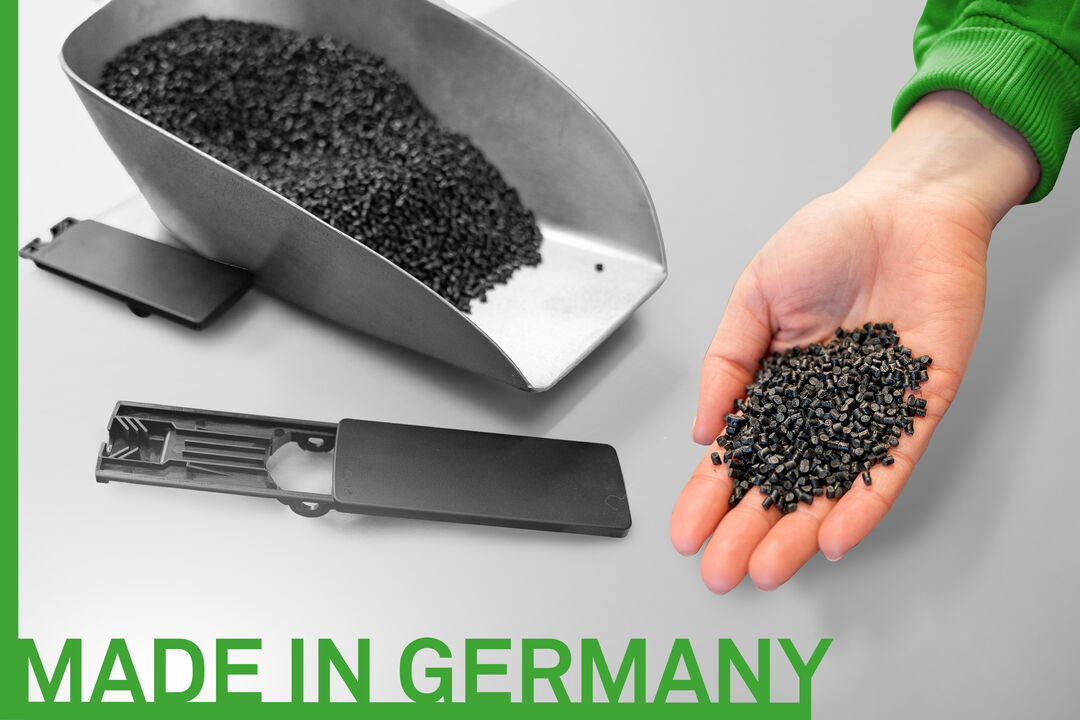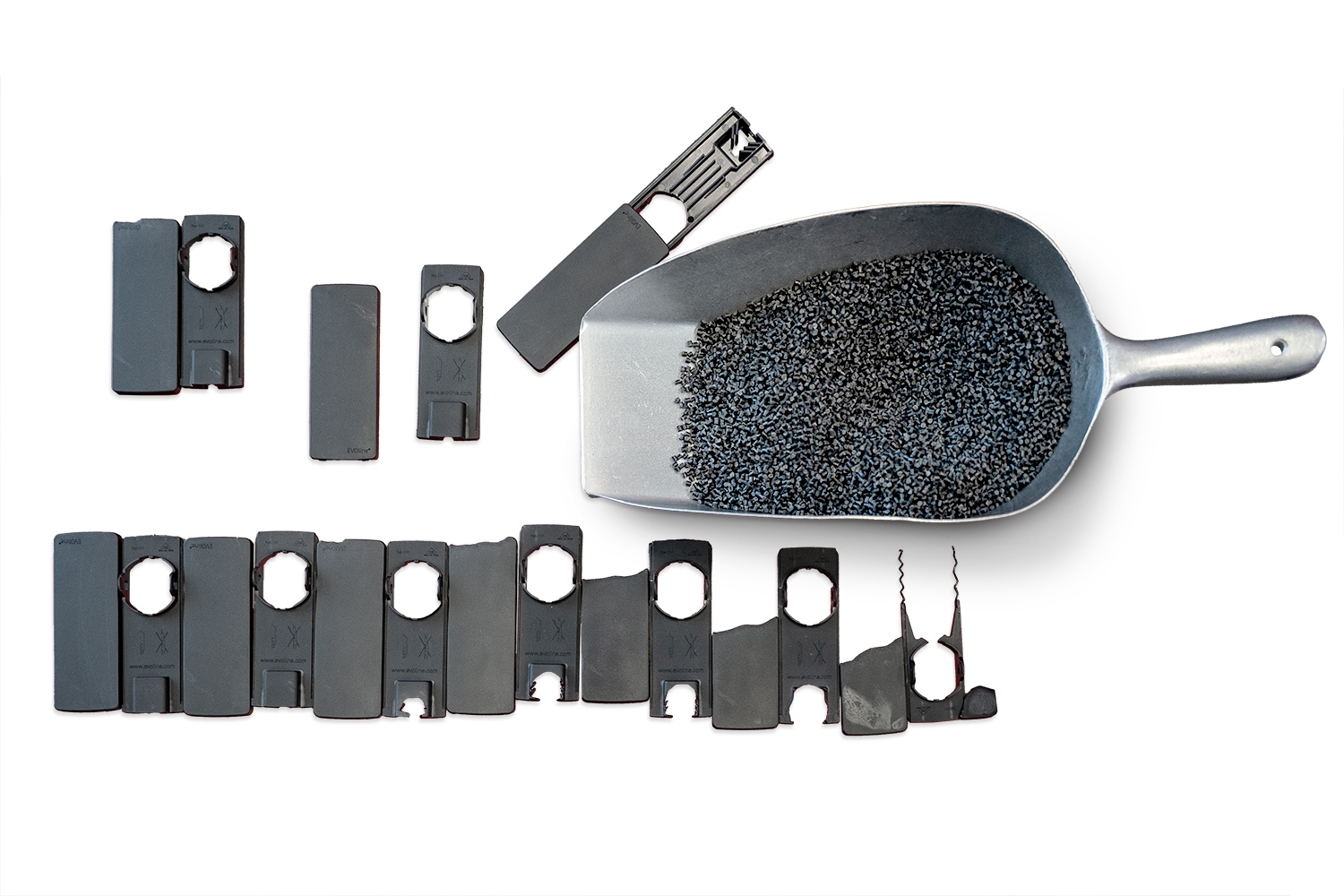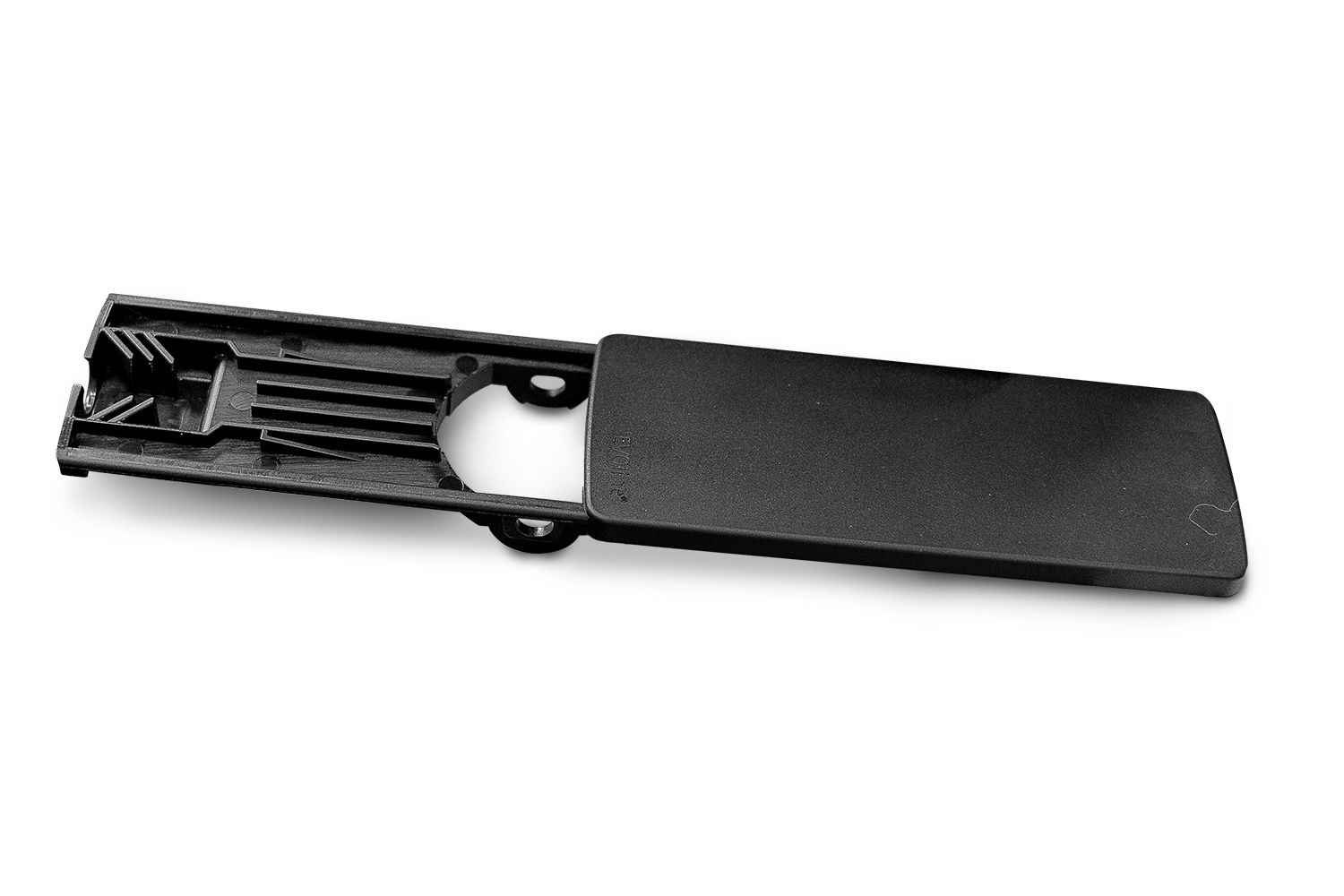Less plastic for a better future

A sustainable material for EVOline products – initial tests with RSC are very promising.
The desire for greater sustainability is growing and starts with the materials selected. EVOline is determined to make a difference and is testing an innovative material called RSC (Real Stone Compound). This approach is a new way of making more sustainable product solutions. Initial, highly promising prototypes, such as the flat EVOline Plug, have already been made with the new material.
Minerals instead of oil
RSC’s chief benefit is its composition because minerals replace plastic. These fillers don’t just cut fossil fuel consumption, but also carbon emissions and material costs. In the future, the material could be a real alternative to conventional plastic. EVOline products like the Plug, which is a space-saving power option virtually concealed behind furniture, would require up to 50% less plastic.
The first impression is exciting
The first Plug prototypes made of RSC were developed by partnering closely with the material’s developer. The sampling phase already demonstrated how easy the material is to work with. It hardly warps at all, making fitting way easier. Enhanced dimensional stability and a pleasant matte finish are further benefits.

Plug and play is now even more sustainable
The Plug is just the beginning. As an exceptionally flat plug, just five millimetres tall, it’s ideal for tests with new materials. Further EVOline bestsellers like the One or the Circle80 Family could soon demonstrate how attractive functionality can also be environmentally friendly.
What is RSC?
RSC stands for Real Stone Compound. It’s an innovative compound material that combines plastic with mineral fillers. This blend means better mechanical characteristics, cost efficiency and greater sustainability. Cutting the proportion of plastic reduces fossil fuel consumption, meaning a better eco footprint. The mineral components make the material more dimensionally stable, which is a real bonus in precision-component manufacturing. These characteristics mean RSC is a very promising alternative in applications where both ecological and technical requirements need to be met.

Futureproofed sustainability
But RSC is still very much in its infancy. There is currently no certification (such as that required for VDE testing) for components. But the direction of travel is clear. The first step is to manufacture less safety-critical unconcealed parts from RSC – based on polycarbonate or PC/ABS for instance. At the same time, EVOline is partnering with organisations like the Kunststoffinstitut Lüdenscheid to look at other usages.